#the way she wrote about losing doublet in rtml made me cry
Explore tagged Tumblr posts
Text
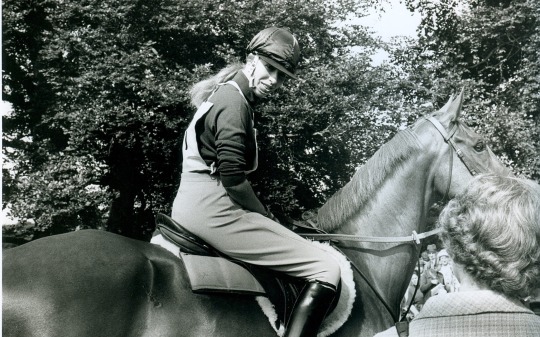
Inside Princess Anne's lifelong love affair with horses
As the Princess Royal approaches her 70th birthday, those who know her recount the most enduring relationship of her life
By Eleanore Kelly for the Telegraph
The Princess Royal has spent a lifetime with horses. Like her siblings, she started riding at the age of three. But what makes her remarkable is the success she achieved as a competitor. Aged 21 she was crowned European Eventing Champion at Burghley. She was riding Doublet, a horse bred by the Queen, for polo, and gifted to the Princess.
At the 1975 European Eventing Championships, she finished second on Goodwill, another horse owned by the Queen and her mount at the Montreal Olympics in 1976, where she became the first member of the British royal family to compete at an Olympic Games. She rode winners in horse racing too, notably in the Grand Military Steeplechase at Sandown over jumps, and the Diamond Stakes on the flat at Ascot. No wonder she won BBC’s Sports Personality of the Year award in 1971 - the first ever event rider to carry off the trophy.
There were always ponies around during her childhood. Both her parents rode regularly, as did her older brother, Prince Charles, who developed a keen interest in polo and was considered a gifted player.

In those days polo was a men-only game, so not something his sister would have pursued, but she was a member of the Pony Club where she would have tried most equestrian disciplines with other young enthusiasts. Perhaps the attraction to eventing was the camaraderie that is always synonymous with a risk sport; horses are no respecter of titles.
When she became more serious about eventing, her parents arranged for training with Alison Oliver, wife of international show jumper Alan Oliver, who was based near Windsor. She is widely credited for propelling the Princess on the road to international equestrian stardom.
Lucinda Green, one of Princess Anne’s eventing peers, describes her as the pin-up of their era. Lucinda was a fellow team member at the Montreal Olympics and remembers the Princess having a crashing fall halfway around the cross-country course and suffering concussion. She remounted and finished the course but to this day cannot remember the rest of the jumps.
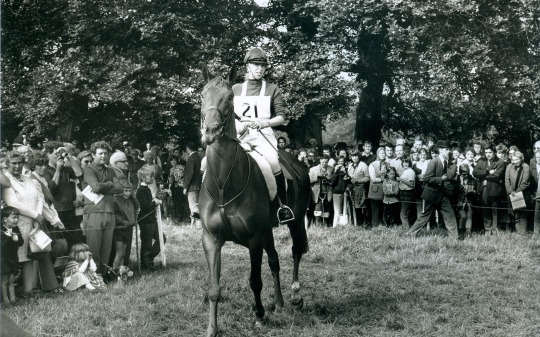
“She was extremely brave and good enough to get on the British team on two very different horses. Goodwill, her horse in Montreal, was not easy. He was big and had no brakes - I definitely wouldn’t have ridden him,” says Green.
With animals so often comes heartbreak, which even Princesses cannot escape. Her partnership with Doublet, a diminutive chestnut with the heart of a lion, ended in tragedy. The pair were destined for the Munich Olympics when the horse who had defined her career shattered a hind leg in an accident at Windsor and had to be put down.
At a time where security at sports events was minimal, The Princess was hounded by the media. “I always admired the way she coped with the press. That added the most unbelievable pressure on top of trying to do her sporting best. Tough for her but she put our sport on the map and kept it in the spotlight,” observes Green.
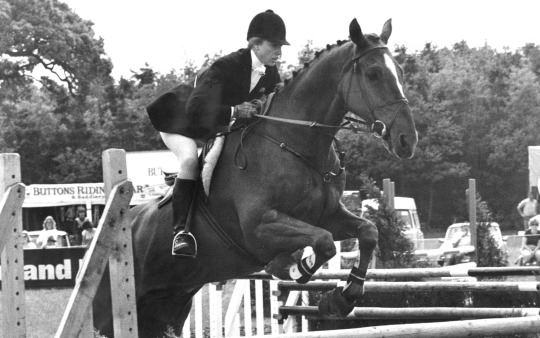
In 1985, she was persuaded to ride in a charity horse race at Epsom (home of the Derby). By this stage she’d hung up her eventing boots and had two young children. Yet she was always game for the challenge, if it involved horses.
Horse racing requires a very different technique from eventing, so she approached trainer David Nicholson for help. Known as “The Duke” because of his imposing personality, he suggested she come to his Cotswold yard, little expecting she would turn up almost every day for several years to ride out.
His wife Dinah became familiar with the Princess, as she would join them in the kitchen for breakfast after exercising the horses. “She was so dedicated and determined, driving 40 minutes every morning and arriving at 7.15am on the dot, so she could tack up her horse before riding out on the gallops. Then she would have breakfast with us and sometimes there would be a jockey - Richard Dunwoody or Peter Scudamore. The conversation would mostly be about horses. After breakfast, she would set off for a busy day of royal duties.”
Even if she had a royal engagement in London that went on late into the night, she would still get up after a few hours sleep to drive to the yard in Stow-on-the Wold. Acquaintances say her security detail looked permanently exhausted from keeping up with her.
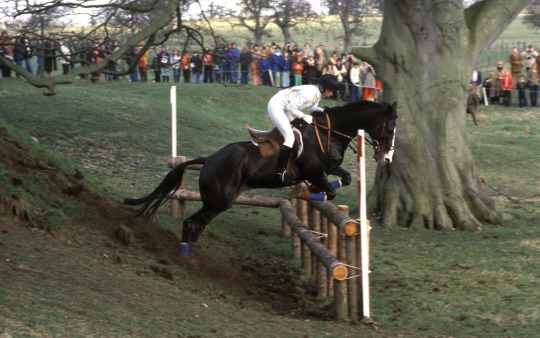
After the charity race, in which she finished a respectable fourth, she asked Nicholson if she could continue riding out at his yard. It seemed the attraction was as much about the camaraderie of yard life as it was the actual race riding. “She became very fond of the people in racing and was always very natural with the stable lads, who liked her.”
There was a horse she was very fond of too, called Cnoc Na Cuille. He was a big winner for her in her career as a jump jockey (including the Grand Military) but soon after finishing third at Warwick, he dropped dead, probably from a heart attack.
“The Princess was not one for showing emotion but she was clearly very upset about it,” says Dinah. Soon after this she gave up race riding, although she has bred a few race horses herself at her home, Gatcombe Park in Gloucestershire.
For 37 years, thanks to the Princess, Gatcombe has hosted eventing competitions, including the prestigious Festival of Eventing. The cross-country course is designed by her former husband Captain Mark Phillips, an Olympic medallist and four-time Badminton winner (once the golden boy of British eventing), and the Director is their son Peter Phillips.
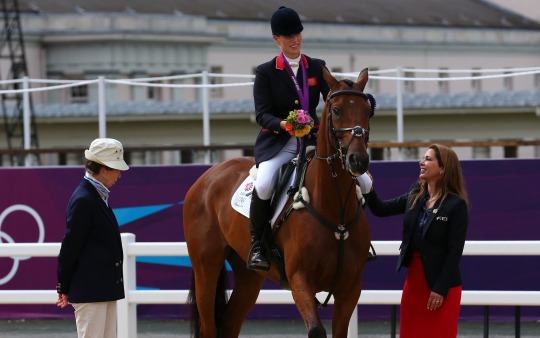
Princess Anne’s daughter, Zara Tindall, a former European and World Champion event rider and silver medalist in the London 2012 Olympics, regularly competes there and the Princess hands out the prizes.
Tindall has even more eventing accolades than her mother and, like her, she was voted BBC Sports Personality of the Year (in 2006). Her mother has always been hugely supportive of her children’s interest in horses. Every Christmas, the Princess would drive the children’s ponies up to Balmoral* (think they mean Sandringham?) herself in a horsebox so they could all ride.
There is also a strong equine theme to the Princess Royal’s charity work. She’s President of World Horse Welfare and the Riding for the Disabled Association (RDA) as well as Patron of the Pony Club and the Injured Jockeys Fund (IJF). She was President of the International Federation of Equestrian Sports (FEI) from 1986 to 1994, a role she took over from her father, Prince Philip.
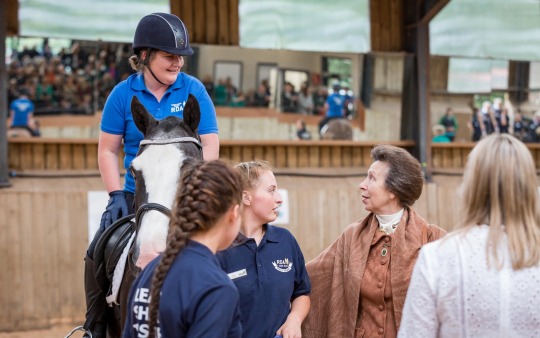
Roly Owers, CEO of World Horse Welfare, describes the Princess as having a deep love of horses, devoting a huge amount of time to all aspects of horse welfare. Former champion jockey John Francombe describes her as the best after-dinner speaker he has ever heard, with a great sense of humour, persuading well-oiled guests to open their wallets for charity and even persuading them to adopt horses themselves.
Rehoming unwanted horses is a large part of the World Horse Welfare’s work and the Princess is a rehomer herself. “On one of her visits to our rescue centres, she met a Welsh Cob called Annie and asked if she could have her. I believe she still rides her today.”
“She has always had a clear opinion but understands horses better than anyone,” says Owers. That once got her into trouble, at the 2013 World Horse Welfare conference when one of the topics was the European Horse Meat scandal. “She made a comment about the value of horses that was translated as ‘Princess Anne eats horse meat’ by certain journalists.”
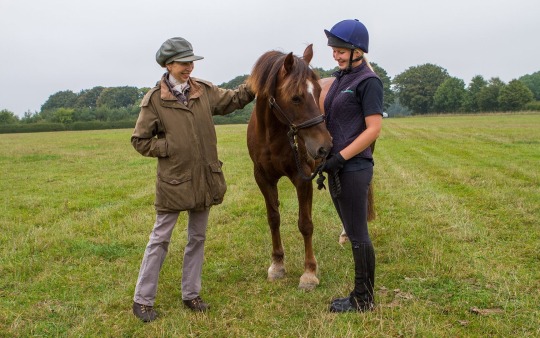
What the Princess had actually said was: "Should we be considering a real market for horsemeat and would that reduce the number of welfare cases, if there was a real value in the horsemeat sector? I chuck that out for what it's worth because I think it needs a debate."
As Owers remembers, “it was unfortunately the first time we filmed the conference and broadcast it live, so you can imagine it created 48 hours of hysteria.” Though whether the Princess actually sits down to pony steak for Sunday lunch is not known.
Caroline Ward of the RDA remarks on her extraordinary empathy. “She understands the challenges our participants face and what they get out of the experience of riding horses. She will talk to them about their ponies and what it means to them to spend time with horses.
“These riders, many of whom find communication and mobility so difficult, will always open up to her. They are bound by this common interest and love of horses. She will also chat to the volunteers, to make them feel all the more special.”
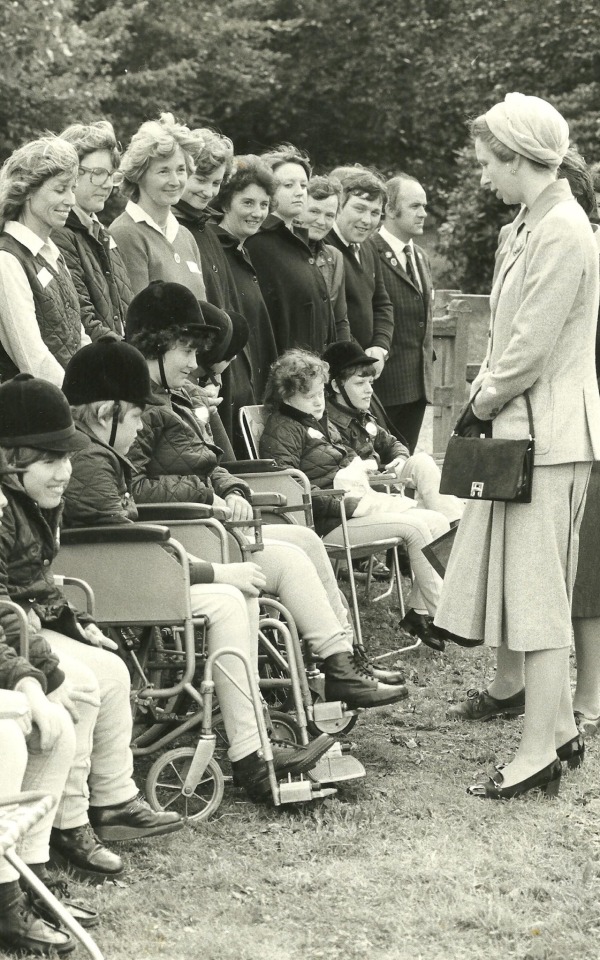
Ward recalls the time Princess Anne helped a rider load her difficult horse into the horse box. “She came to our RDA National Championships at Hartpury College. She saw this struggle and despite not being dressed to get stuck in, she clearly couldn’t walk by without offering assistance. Well, this horse took one look at her and realised this was someone who meant business, and walked straight into the horsebox.”
Ex-jockey and racing journalist Brough Scott has known the Princess for many years through sport and her support of the IJF. “At charity events, rather than entertaining the fat cats, she is happiest talking to the ex-jockeys, many of whom are in a wheelchair. One really likes her for that, even though she is not trying to be liked.”
To be a successful rider, you have to build a relationship of trust and mutual understanding with your horse. That means controlling your fear and emotions. Eventing, a combination of the three disciplines of dressage, cross-country and show jumping, is perhaps the truest test of all-round horsemanship, demanding both accuracy and courage. It is only for the bravest of the brave, says Scott.
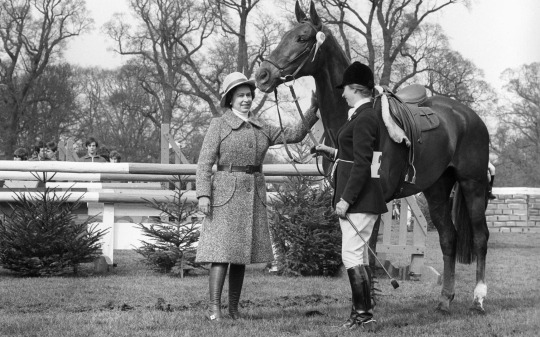
“Princess Anne wasn’t simply a Royal who rode, she was an athlete who achieved great things in her eventing career and rode courses that would have terrified most people. That must have given her self-confidence and fulfillment.”
In her public duties too, the Princess Royal has given her all, incidentally personifying the characteristics necessary for a fine horsewoman: discipline, dedication and courage. Are they a matter of her breeding and upbringing, or do we have her love of horses to thank for that?
#this is a lovely piece#i would love to see coverage of the races she rode in#especially when she won#and indeed her eventing career#i wish there was more available to watch#the way she wrote about losing doublet in rtml made me cry#princess anne#princess royal#horse whisperer#anne70#british royal family#brf#newspapers
51 notes
·
View notes